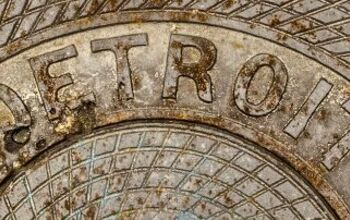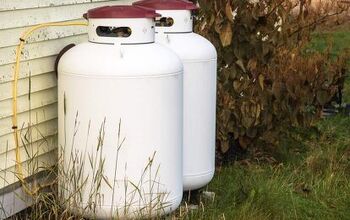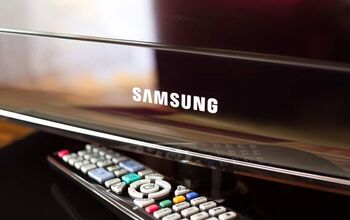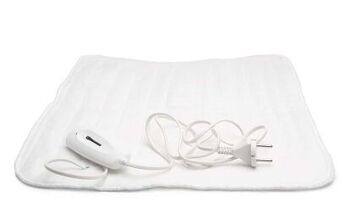What Are The Pros And Cons Of Well Water?

When it comes to deciding whether you want to use well water at your home instead or in addition to public water distribution, several questions will help you make a decision.
Does your property already have a water well or will you need to drill one? Do you have access to municipal water? Does your governmental entity allow wells or use of well water?
The pros of using well water include a low operation cost, preferable taste of water, control over water treatments and chemical use, and emergency preparedness. The cons of using well water include the expense of initial drilling, costs of maintenance and repair, increased responsibility and knowledge required to maintain water quality, possible undesirable mineral content in the water, and water interruption due to drought or power outages.
Do You Need Water Line Services?
Get free, zero-commitment quotes from pro contractors near you.

What Are The Pros Of Well Water?
Low Ongoing Cost
Once you have a water well in place, maintenance and testing costs are almost always lower than paying for public water distribution or private water delivery. When you use all your drinking, washing, and gardening water from your own well you won’t be paying a charge for water usage from your municipality or water delivery company.
Municipalities usually charge a monthly fee, which can be a set fee not based on your actual water usage. If you choose a private water delivery company, deliveries can be sporadic and expensive. With an operating well, you have ongoing access to available water from naturally occurring underground water tables.
Preferable Taste Of Water
Most people who drink well water prefer its taste over publicly distributed water. The reason for that is twofold:
- Public water distribution sources treat water with chemicals such as chlorine to remove any harmful contaminants.
- Treatments usually remove any naturally occurring minerals that make water taste more pleasing.
While public water treatments are strictly controlled to avoid any harmful outcomes, processed water can taste flat or even unpleasant.
Personal Control Over Water Treatment
The chemicals that municipal facilities use to remove contaminants in water are strictly controlled for safe human consumption and water quality, although consumers may not know what chemicals are being used. Obtaining a water quality report can be time-consuming and sometimes difficult.
When you have a private water well, tests will show not only levels of any contaminants but levels of naturally occurring minerals that are beneficial. The owner has control over how the water will be treated, if at all, at either the well location or through in-house equipment such as a water softener or reverse osmosis.
Use During Public Water Rationing Or Outages
Some communities ration water usage during droughts or for water system maintenance periods. During rationing, for example, if you use public water you may only be allowed to water your yard or wash your car on certain days of the week. If you use well water you do not face those types of restrictions.
Even if you have access to public water distribution, there are advantages of having dual water options from both public water distribution and a private water well:
- Some municipalities allow you to notify officials that you are using well water for outdoor activities while still using public water distribution for drinking and indoor uses. If that is your situation, you could be exempt from rationing.
- If you have both public water and a private well, you will still have access to your well water in cases where a public water source deactivates due to water quality issues, maintenance needs, outages, or other reasons.
Increased Property Value
Having a water well on your property almost guarantees increased property value compared to property that does not have a well.
Of course, this is especially true if your property has no access to publicly distributed water and must rely completely on well water. But it is also true if future buyers have the opportunity to choose well water instead of public water distribution or to choose a dual water supply.
What Are The Cons Of Well Water?
Initial Drilling Expense
If your property already has a water well, you won’t encounter initial drilling expenses. If you decide to drill, water well expenses can run quite high. Finding a skilled, reputable, and reasonably priced well driller can be a challenge. In addition, deciding where to place your well may require an additional expert at additional cost.
Before you decide to drill on your property, make sure that your area governing body allows wells. You may encounter fees for registration or permitting, which will increase your overall well setup costs. If your area does not allow wells and you proceed without checking, your initial drilling expense could have some unexpected fines and costs associated with it.
Costs Of Well Maintenance And Repair
After the initial drilling expense, if you have one, come the ongoing costs of well maintenance and repair. As with anything mechanical, water pumps can break down or function inadequately.
Repairs require expert specialization and can be quite costly. If you rely on well water for all your activities, including drinking, you may need to pay even more for a rush repair to prevent having to take alternate and costly measures in the interim.
Even without breakdowns, regular maintenance and inspection are vital to the optimal ongoing functioning of a water well. Some water has minerals that clog equipment, requiring frequent maintenance measures.
Responsibility For Water Quality
Well owners must be knowledgeable about what is in the water coming from the well. As a water well owner, you are responsible for the water quality of your water from the initial drilling certification to ongoing everyday use. This responsibility can be time-consuming and complex.
Excellent water quality is especially important if you use your well water for all uses including drinking and bathing. Well water testing can be inconvenient and easy to forget, but it is important to maintain a regular water testing schedule.
In order to stay updated on your water quality, you will need to choose a water testing facility that will:
- Find any contamination in the water supply
- Give you an analysis of overall water makeup
- Suggest or undertake remedial actions for any negative findings
For some wells, you will want to install a filtration system either at the pump (such as to filter out sand) or at the faucet (to filter out specific minerals and contamination).
Undesirable Mineral Content
Some water aquifers contain minerals that are not harmful to people but affect the taste and function of water coming from the well.
Mineral content of well water depends not only on the makeup of water in the aquifer, but also what type of soil the water must travel through to reach the well. In some cases, soil can impart undesirable taste or texture in water even if it remains safe to drink or use in other ways.
Here are some of the ways undesirable mineral content can affect well water:
- Water with high sulfur or salt content may have an unpleasant taste or undesirable result when washing clothes.
- High levels of some minerals in water can clog pipes and fixtures, requiring frequent and costly plumbing visits.
- Some minerals will cause spots when washing windows, cars, or dishes.
Water Interruption Due To Power Outages Or Drought
While water well users are not dependent on public distributors for a constant water supply, they are dependent on the continued functioning of the well. Most well pumps run on electricity supplied by a power provider. If the provider suffers a power outage, the pump cannot function until power is restored.
Droughts also affect well production. In severe drought conditions, wells can be unreliable because water scarcity may cause water levels to drop too low to produce clean water. In some cases, area governmental entities will restrict water usage from wells until drought conditions improve.
Do You Need Water Line Services?
Get free, zero-commitment quotes from pro contractors near you.

Summary
Many people choose to use well water because they think it tastes delicious and refreshing. Others choose well water because they feel it may be healthier and more environmentally responsible than publicly treated and distributed water supplies.
Part of the decision process of whether to use well water will depend on how you intend to use it, which affects necessary water quality. Another aspect of the decision is whether you already have a well on your property, which affects costs or may entail complying with drilling regulations.
Finally, much of the decision process will depend on whether you are willing to take on the extra responsibility required of a well owner, including maintenance and water quality testing.
If you decide well water is your choice and you ensure that you have a reliable well and high-quality water supply, you can expect some happy results. Your water is likely to taste delicious, contain healthy minerals, and cost less than public water distribution. In addition, the presence of a well on your property will improve your property value.
Related Guide

Paige is an elementary school librarian with a passion for writing. Her hobbies include reading an exorbitant amount of fantasy, slowly teaching herself to draw, and home decor. While she isn't the most talented artist or interior designer, what she lacks in skill she more than makes up for in enthusiasm. When she's not curled up with a book, you can certainly find her curled over the keyboard.
More by Paige Hanawalt



























